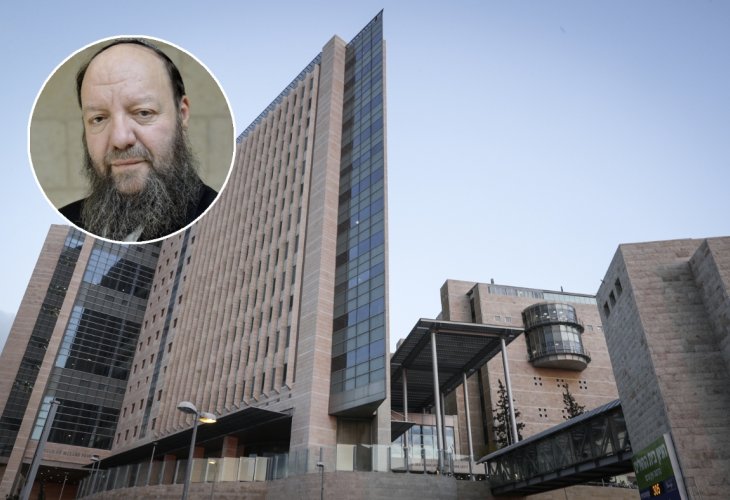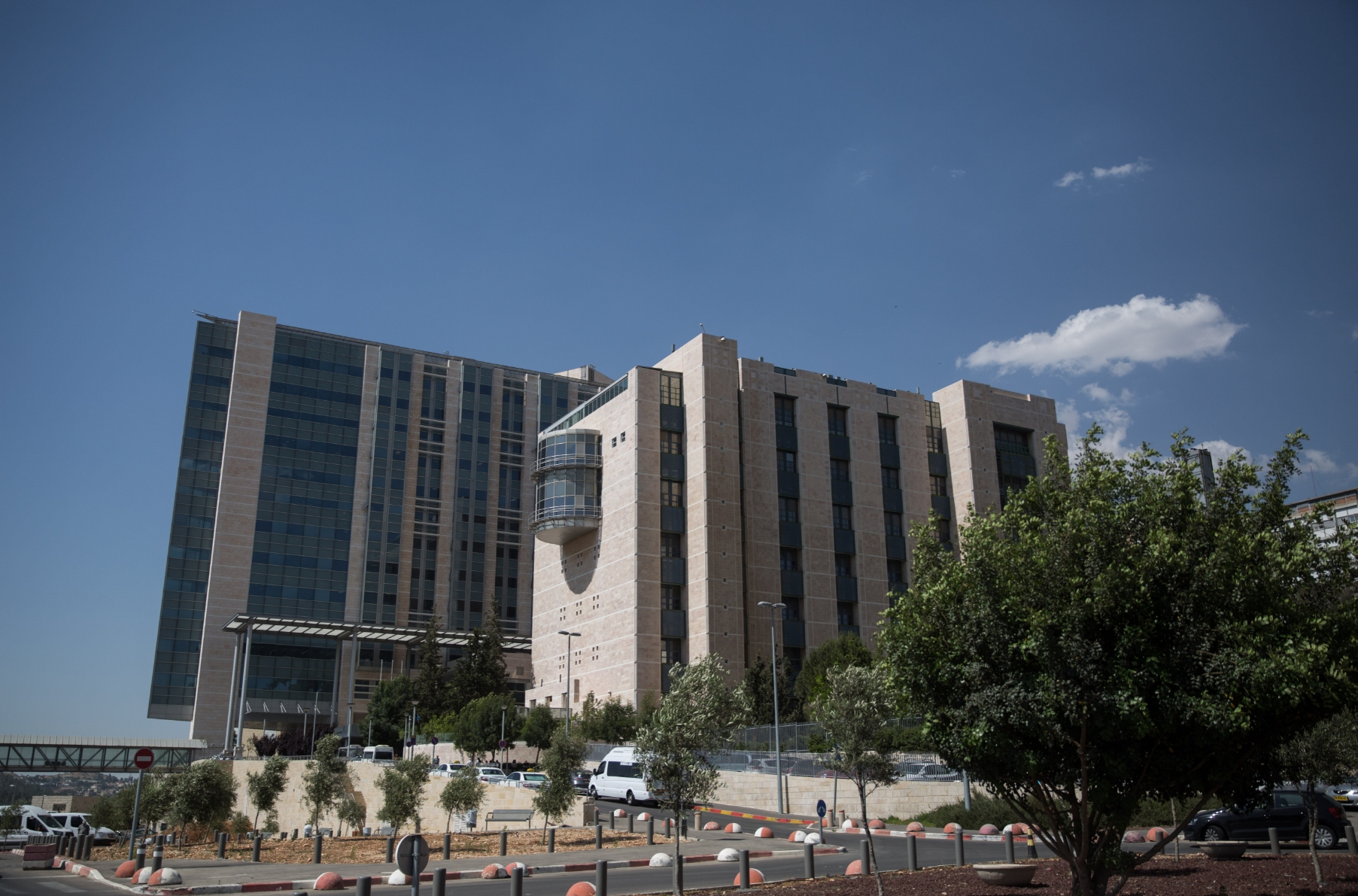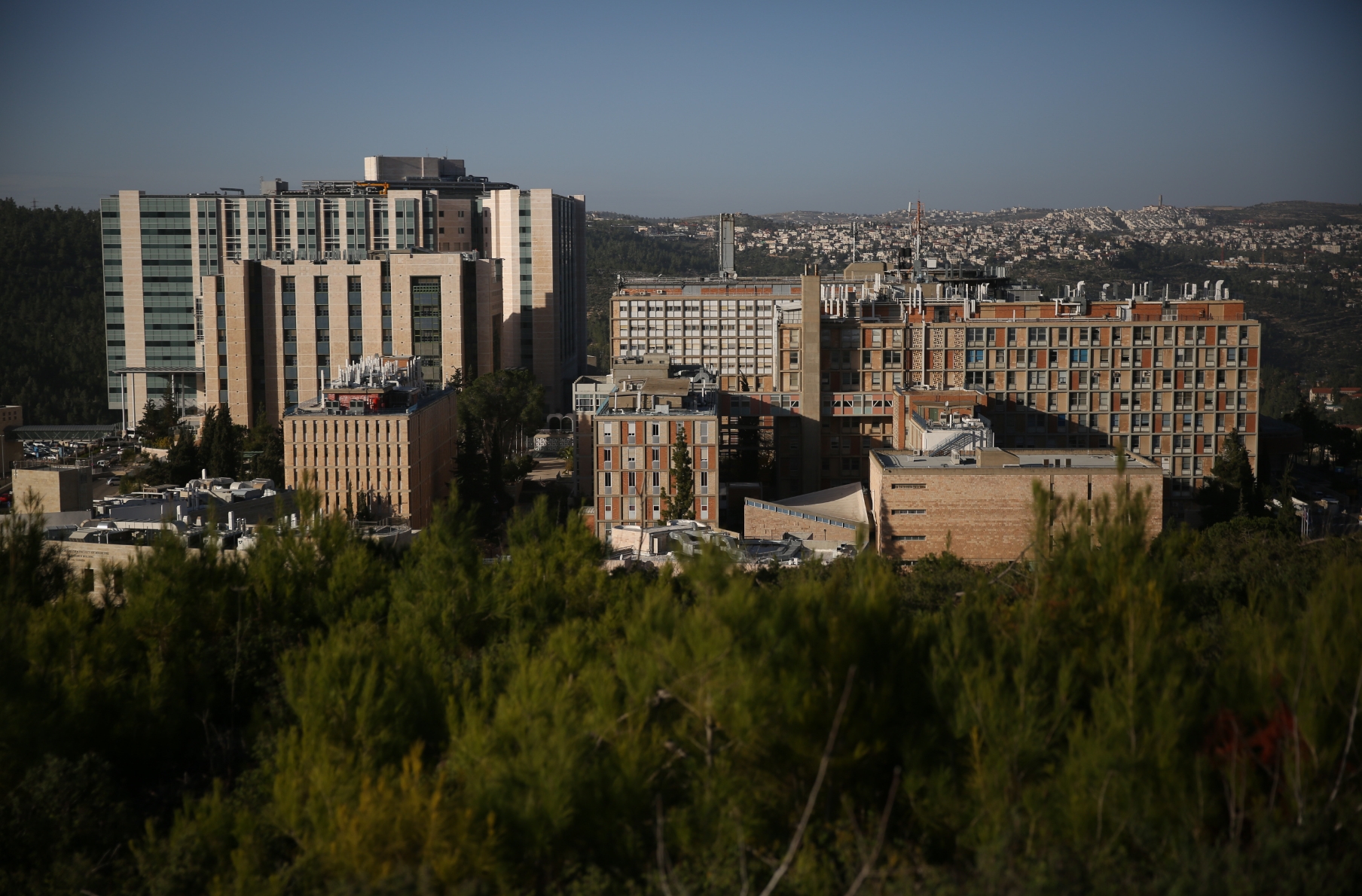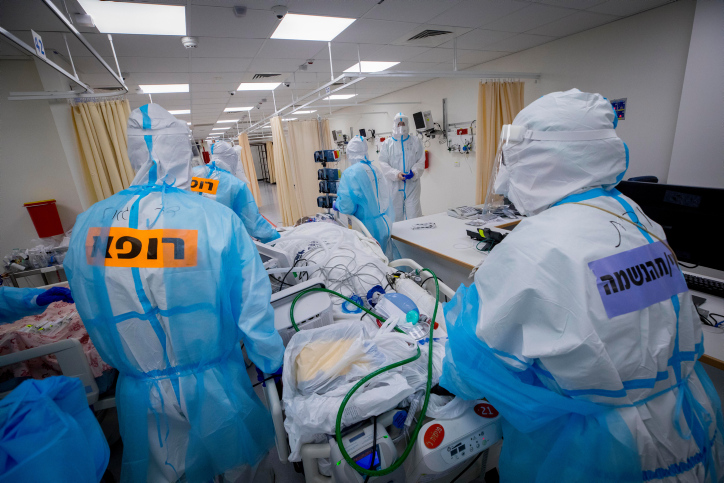"The Feeling is Terrible. Sometimes I Answer and Burst into Tears"
Real-time alerts for Kohanim about impurity at the hospital, strict kosher standards, and solutions for every electronic device patients need. Rabbi Moshe Klein, rabbi of the Hadassah Medical Centers, is building a world of medicine and Halacha, striving to help every inquirer and being there for questions of life and death.
 Rabbi of Hadassah Medical Centers, Rabbi Moshe Klein
Rabbi of Hadassah Medical Centers, Rabbi Moshe Klein“We encounter dozens of acts of kindness every day," says Rabbi Moshe Klein, rabbi of the Hadassah Medical Centers. "Just yesterday, I was busy with a person who came to the hospital for medical treatment, and a routine check showed he had a fever. From there, he was sent directly for a COVID test, which came back positive, without him having any prior knowledge. This was a person with a disability, and throughout the day, we made sure to arrange everything he needed according to his medical condition, down to the smallest details. Late in the evening, we finished handling his case, and he was released to continue isolation at home. Then, an acquaintance called me to tell about a young woman who was found to have a brain tumor, and we had to immediately find the best doctors for her. After the many hours spent on the previous patient, I turned my full attention to helping this young woman."
It turns out that among his many roles at the hospital, the rabbi also has another role: helping anyone who approaches him. He answers calls on his personal phone, the number of which is published and well-known, answering all sorts of questions, big or small, from simple Halachic inquiries to questions pertaining to life and death, striving to be there for hospital patients, attentive not only to the Halachic aspect of the request but also much beyond. However, when asked about his role at the hospital, the rabbi defines it around four topics. "The first surrounds the cycles of life and time – prayers and classes in synagogues, Shabbat and holidays, and maintaining the kosher system," he says. "The second is the issue of charity at the hospital, which includes the operation of the many charity organizations working there. The third is medicine and Halacha, which requires Halachic clarification on many personal and general topics, and the fourth is being the foreign minister of Hadassah hospitals to the religious public in all its colors."
 Hadassah Ein Kerem (photo: Hadas Frosh / Flash 90)
Hadassah Ein Kerem (photo: Hadas Frosh / Flash 90)
Down to the Smallest Details
Rabbi Klein began his extensive work in his early twenties. He was one of the founders of the Ofra seminary, and at just 24 years old, without any management or teaching degree, he was asked by Rabbi Avraham Shapira to manage the Tzafira seminary. During the 19 years he managed the place, the number of students at the seminary grew from 370 to 1,376. From there, he continued to academic studies in law and mediation, and then was asked to serve as the rabbi of Hadassah Medical Centers, now serving in this role for the eighth year. Furthermore, he is also involved today in many forums: the At Risk Child Forum, the Terminally Ill Patient Forum, the Ethics Committee, the Management Forum, and more.
What led the rabbi to such extensive work throughout his life?
"I didn’t strive for any of the roles; they just came my way. In any case, I'm happy for the opportunity to engage in such fascinating work over the years," Rabbi Klein responds.
Within Hadassah Medical Centers, the rabbi managed to create Halachic solutions that, on one hand, match the world of observant Jews, and on the other hand, do not disturb secular people. "I still remember how, in the period before Passover years ago, Maternity Ward G was closed because too few women came to give birth there. The concern about kosher food during the upcoming holiday kept them away."
And what is happening today in this area?
"We revolutionized the kitchens, and all the food served today at the hospitals is strictly kosher. Moreover, Jerusalem is diverse, and we strive to offer a level of kashrut that suits everyone. Over time, we saw that about 80% of the hospital visitors are ultra-Orthodox, religious, or traditional, and one of their basic needs is, of course, proper kashrut. Regarding the maternity ward, since that empty Passover evening, today all the wards are full, and the number of births has increased several times over."
Also in the area of Shabbat observance, the hospital staff, under the rabbi's supervision, works on adapting every electronic device to Shabbat conditions. "For example, last Thursday, a new computing system was introduced at the hospital. This is a massive system that, among other things, consolidates all patient information. To implement the system, entire work teams were selected and worked all night until 8:00 AM, which was the set endpoint of the process. However, the integration of such a complex system includes thousands of details, and sometimes there can be technical issues that prolong the work time. Nevertheless, the system must operate immediately, and the need for the data stored within it constitutes a matter of saving lives. Therefore, the IT teams initiated several Zoom meetings where we raised all the relevant questions in case they had to continue working on it over Shabbat. Each detail was examined according to Halacha, and decisions were made about what is permissible and what is not if they reached such a situation."
 (photo: Hadas Frosh / Flash 90)
(photo: Hadas Frosh / Flash 90)The questions about Shabbat also revolve around machines and medical treatments. "For example, there is a machine called a cyclotron, which needs to produce a material with a shelf life of only 8 hours, and so it must work even on Shabbat to produce the material for the patients who need it. For this, we went and checked, together with all the relevant professionals, how exactly the machine works and where human operation is involved. After all that, I defined the Halachic questions that arise there, and in consultation with leading rabbis, we managed to solve the Halachic problems concerning operating such a machine on Shabbat," he says with satisfaction. "The hospital has numerous electronic devices, and each undergoes comprehensive Halachic research. Beyond that, there are electric doors, keyboards, and more in the hospital, for which there are also suitable solutions."
What happens when there are disagreements in the hospital regarding the need to observe Halacha?
"A person doesn’t need to be religious to allow their friend to observe mitzvot; they just need to be a sympathetic and caring person, that’s all. On my part, I strive to do whatever is possible for those coming to the hospital who wish to observe Halacha, in a way that also doesn’t harm those who live differently. As someone who studied mediation, I try to find solutions through which we can reach a compromise, and in the end, we always find a way to get along, as life is stronger than the dispute."
Unlike the questions arising from the immense apparatuses, requiring precision and research down to the smallest details, there is another type of questions the rabbi deals with, questions of life. "Sometimes, it’s possible to extend a person’s life using unnatural means, and many questions arise around this issue. What about a patient in the last days of their life, and whether the introduction of the equipment will turn their life into a life of machines or a real life? Should we decide for them, or if possible - let them choose for themselves? These deeply personal and charged questions, I translate into Halachic definitions, as our Torah is a Torah of life, which has clear answers even to the harshest and most painful cases. When needed, I turn to prominent rabbinic scholars to get their advice on the matter. For years, I have been coming and going from the homes of all great rabbis of Israel to provide a proper response to each case."
 (Photo: Olivier Fitoussi / Flash 90)
(Photo: Olivier Fitoussi / Flash 90)What is the feeling after giving an answer on such sensitive issues of life and death?
"The feeling is terrible. There are times I give an answer and burst into tears. These are most significant decisions for the lives of those asking, and along with the given answer, I feel their pain."
What about patients who consult their own rabbi?
"To those people, I offer my help in providing an explanation to their rabbi regarding the medical and Halachic state from my perspective. This information can assist the rabbi in their decision, and for those who want it - I am happy to help."
Working from Home
Until the arrival of COVID-19, Rabbi Klein could be seen in the hospital corridors, working on providing answers to the numerous Halachic issues that arise there and aiding anyone who needs it. However, as a kidney transplant recipient, the past year forced him to work from home. "From the start, we had to implement changes instantly across many areas," says the rabbi. "A hospital is a place where organization is extremely rapid, and so I also transitioned to working via phone and computer, with assistants in different fields. Just a few days ago, I was in a Zoom meeting with 39 people. So yes, I can’t meet the public face to face, but every request is handled through technological means in the best possible manner. In general, the COVID era in the hospital is not easy. Doctors are 'falling off their feet' from overwork, and unfortunately, the disease prevents the patient from being in the company of people and even claims lives. The struggle is abnormal, and we constantly try to balance fulfilling the patients' personal needs with avoiding the disease’s dangers."
What questions arise during this period?
"There were clarifications around the kosher status of various medications, but the bigger questions were around the need to visit COVID patients and to bid farewell to those nearing their end."
And what is the rabbi's connection to all of this?
"People approach me personally to get help on these topics, and if I can assist in finding solutions for COVID patients and their families, I undertake the task. Over time, we've learned to dress the relative of the dying patient in protective gear, install visual systems through which they can see the patients, and find a respectful corner where family members can sit and pray for their relatives. I tried to be a voice for many personal requests from people. We have been building a splendid world of medicine and Halacha in recent years, and still, the most important thing is this simple kindness."

